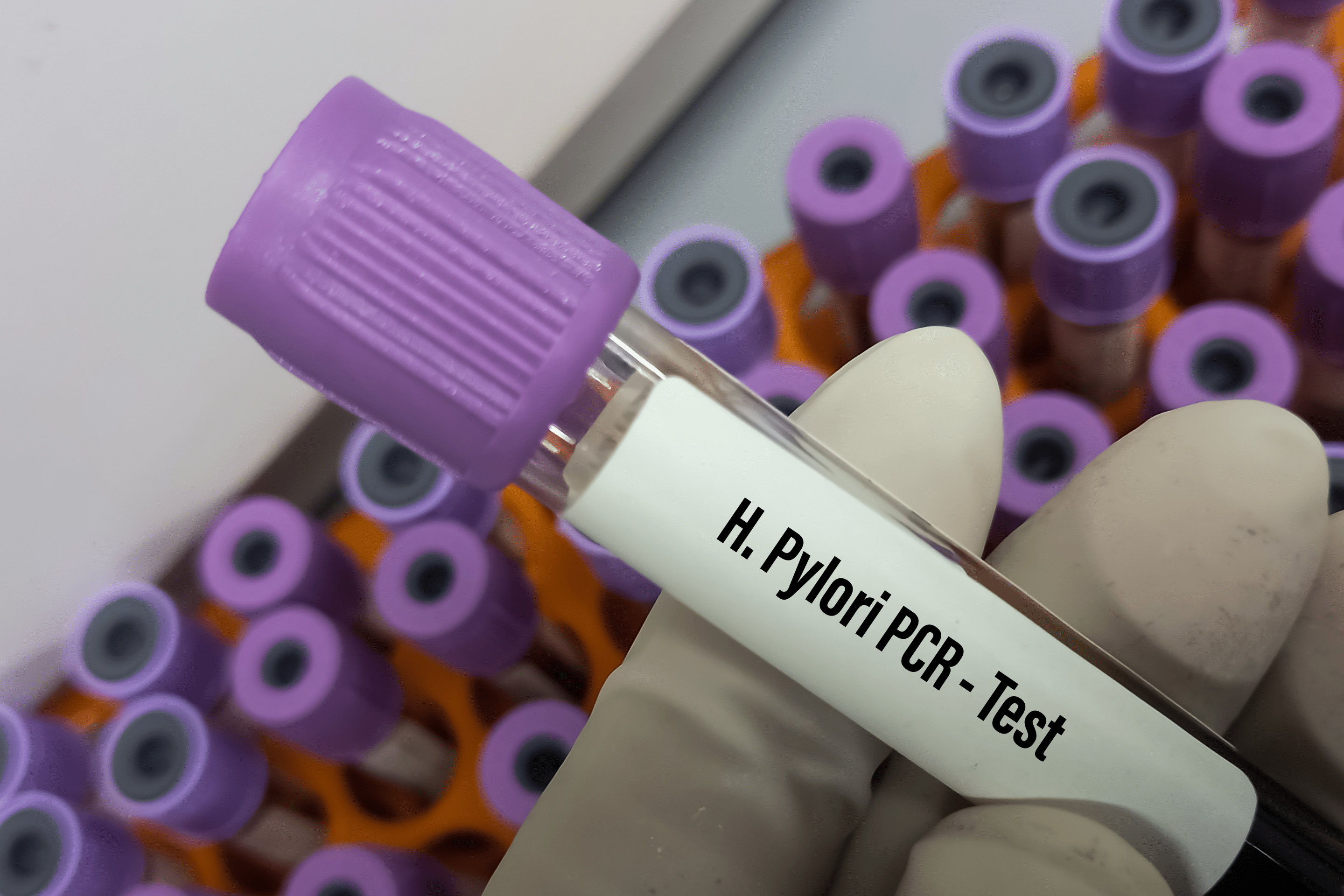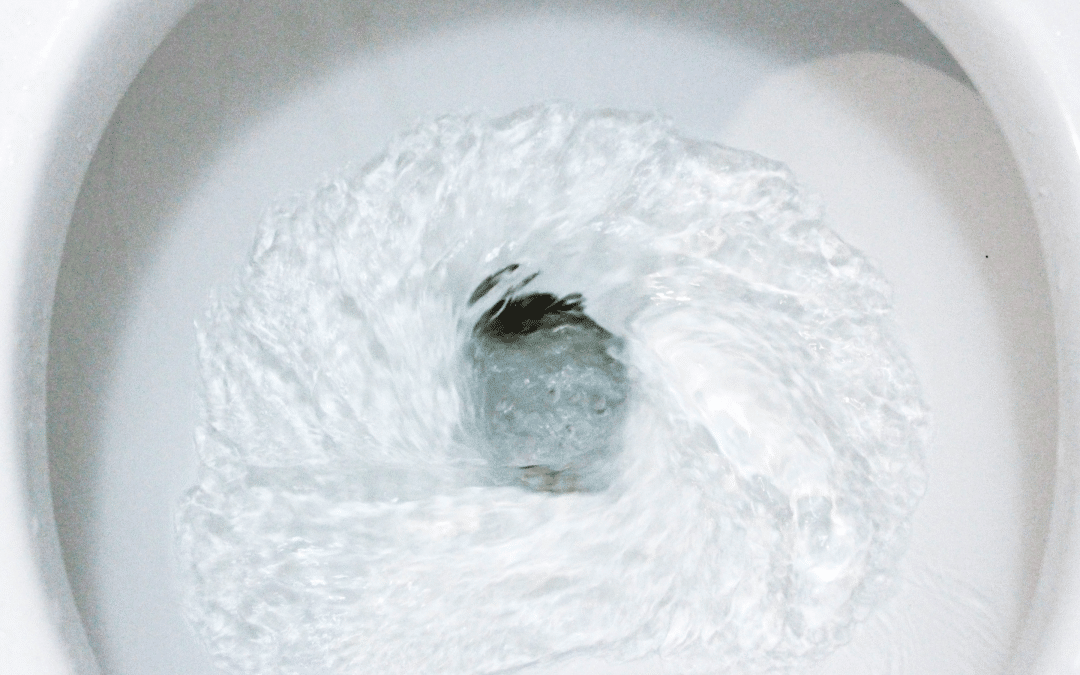Helicobacter pylori, or H. pylori, is a spiral-shaped bacterium that resides in the lining of the stomach and upper small intestine. This microscopic organism has been a subject of extensive research due to its significant effect on gut health and its potential role in various gastrointestinal disorders.
- pylori is a highly adaptive bacterium, capable of surviving in the harsh acidic environment of the stomach [1]. While it is estimated that over half of the world’s population harbors this bacterium, not everyone develops symptoms or complications. However, for those who do, the consequences can range from mild discomfort to severe gastrointestinal issues, including gastritis, peptic ulcers, and even an increased risk of stomach cancer. In this article, we will delve into the intricacies of H. pylori, its relationship with the gut microbiome, and the strategies to manage its presence and maintain optimal gut health.
The Link between H. pylori and Gut Microbiome Disruption
- pylori is a persistent colonizer of the human stomach, and its presence can significantly impact the composition and function of the gut microbiome [2]. This bacterium has evolved sophisticated mechanisms to evade the body’s immune defenses and thrive in the harsh gastric environment, often leading to chronic inflammation and potential dysbiosis.
Research has shown that H. pylori infection can alter the diversity and abundance of various bacterial species within the gut, favoring the growth of certain potentially harmful microorganisms while suppressing beneficial ones [2]. This disruption in the gut microbiome can have far-reaching consequences, contributing to the development of various gastrointestinal disorders and potentially increasing the risk of systemic health issues.
Interestingly, many of those disruptions in the gut microbiome occur due to the treatment and eradication of the H. pylori infection [1-3]. Unraveling the complex interplay between H. pylori and the gut microbiome is crucial for developing targeted interventions and personalized treatment approaches aimed at restoring a healthy gut ecosystem.
Common Symptoms of H. pylori Infection
While some individuals with H. pylori infection may remain asymptomatic, others can experience a range of gastrointestinal symptoms. Here are some common signs and symptoms:
- Abdominal pain or discomfort: This can manifest as a dull, gnawing pain or a burning sensation in the upper abdomen, often exacerbated by eating.
- Nausea and vomiting: Infection can cause persistent nausea and, in some cases, vomiting episodes.
- Bloating and belching: It’s presence of can lead to excessive gas production, resulting in bloating and frequent belching.
- Loss of appetite: Some people with an infection may experience a decreased appetite or a feeling of fullness after consuming small amounts of food.
- Heartburn or acid reflux: H. pylori can contribute to the development of gastritis and peptic ulcers, which can cause heartburn or acid reflux symptoms.
It’s important to note that these symptoms can also be associated with other gastrointestinal conditions, so proper diagnosis by a healthcare professional is essential.
Diagnosing H. pylori Infection: Tests and Procedures
Accurate diagnosis of H. pylori infection is crucial for appropriate treatment and management. Several diagnostic tests are available, each with its own advantages and limitations [4]. Here are some common methods:
- Urea Breath Test: This non-invasive test involves ingesting a solution containing a urea compound. If H. pylori is present in the stomach, it will break down the urea, and the resulting compounds can be detected in the breath sample.
- Stool Antigen Test: This test detects the presence of H. pylori proteins in a stool sample.
- Blood Antibody Test: This test measures the presence of antibodies against H. pylori in the blood. It cannot differentiate between active and inactive infection.
- Endoscopy and Biopsy: During an upper endoscopy procedure, a small tissue sample (biopsy) can be taken from the lining of the stomach or duodenum. This sample is then analyzed for the presence of H. pylori.
Your healthcare provider will consider your symptoms, medical history, and risk factors to determine the most appropriate diagnostic test for your specific situation.
Treatment Options for H. pylori Infection
Once H. pylori infection has been confirmed, various treatment options are available to eradicate the bacteria and alleviate associated symptoms. The most common approach involves a combination of antibiotics and acid-suppressing medications [5]. These regimens typically include:
- Antibiotics: Commonly used antibiotics for H. pylori treatment include amoxicillin, clarithromycin, metronidazole, and tetracycline. These antibiotics target and kill the bacteria.
- Proton Pump Inhibitors (PPIs): PPIs, such as omeprazole, lansoprazole, or esomeprazole, are used to reduce stomach acid production, creating an environment less favorable for H. pylori growth.
- Bismuth Compounds: Bismuth subsalicylate or other bismuth-containing compounds may be added to the treatment regimen to enhance the effectiveness of the antibiotics.
The specific combination and duration of treatment can vary depending on factors such as antibiotic resistance patterns, previous treatment history, and the presence of complications like peptic ulcers.
The role of Probiotics in Managing H. pylori Infection and Supporting Gut Health
Probiotics have gained significant attention for their potential role in managing H. pylori infection and supporting overall gut health. Certain probiotic strains, such as Lactobacillus and Bifidobacterium species, have shown promising results in improving eradication rates, reducing side effects associated with antibiotic therapy, and promoting gut healing after H. pylori infection [6].
Probiotics may exert their beneficial effects through various mechanisms, including:
- Competitive Exclusion: Probiotics can compete with H. pylori nutrients, preventing the bacteria from colonizing the stomach lining.
- Antimicrobial Production: Some probiotic strains produce antimicrobial compounds, such as organic acids and bacteriocins, which can inhibit the growth of H. pylori.
- Immunomodulation: Probiotics can modulate the immune response, reducing inflammation and enhancing the body’s ability to fight off H. pylori infection.
- Gut Barrier Reinforcement: Certain probiotics can help strengthen the gut barrier function, preventing the transfer of H. pylori and other harmful bacteria into the body.
It’s important to note that the effectiveness of probiotics in managing H. pylori infection may vary depending on the specific probiotic strain, dosage, and individual factors. Consulting with a healthcare professional is recommended to determine the most appropriate probiotic supplementation strategy.
Lifestyle Changes to Support Gut Health During and After H. pylori Treatment
While medical interventions are crucial for eradicating H. pylori, incorporating lifestyle changes can significantly support gut health and promote overall well-being. Here are some recommendations:
- Dietary Modifications:
- Increase consumption of foods rich in antioxidants, such as berries, leafy greens, and cruciferous vegetables, to help reduce inflammation and support gut healing.
- Incorporate probiotic-rich foods like yogurt, kefir, and fermented vegetables.
- Limit intake of processed foods, refined carbohydrates, and added sugars that contribute to gut dysbiosis.
- Stress Management:
- Engage in stress-reducing activities like meditation, yoga, or deep breathing exercises, as chronic stress can negatively impact gut health and exacerbate symptoms.
- Regular Exercise:
- Incorporate moderate physical activity into your routine, as exercise has been shown to promote a diverse and healthy gut microbiome.
- Adequate Sleep:
- Prioritize getting sufficient quality sleep, as sleep deprivation can disrupt gut health and exacerbate inflammation.
- Hydration:
- Drink plenty of water and fluids throughout the day to support digestion and overall gut function.
Preventing H. pylori Infection and Maintaining a Healthy Gut
While H. pylori is highly prevalent, there are proactive steps you can take to reduce the risk of infection and maintain a healthy gut:
- Practice Good Hygiene:
- Wash your hands regularly with soap and water, especially before handling food and after using the restroom.
- Consume Safe Water and Food:
- Drink clean, purified water and avoid untreated water sources.
- Properly cook and store food to reduce the risk of contamination.
- Maintain a Balanced Diet:
- Incorporate a variety of plant-based foods rich in fiber, prebiotics, and antioxidants, which support a healthy gut microbiome.
- Limit processed and high-fat foods, which can contribute to gut inflammation.
- Manage Stress Levels:
- Engage in stress-reducing activities and practice mindfulness techniques to support gut health.
Conclusion
- pylori is a complex and persistent bacterium that can significantly impact gut health and contribute to various gastrointestinal disorders. Understanding the intricate relationship between H. pylori, the gut microbiome, and overall well-being is crucial for developing effective prevention and treatment strategies.
By combining traditional medical interventions, such as antibiotic therapy, with complementary approaches like probiotic supplementation and lifestyle modifications, we can work towards restoring a balanced gut ecosystem and supporting optimal digestive health. If you’re experiencing persistent gastrointestinal symptoms or suspect an H. pylori infection, don’t hesitate to schedule an appointment with a qualified healthcare professional.
Sources
[1] Fiorani M, Tohumcu E, Del Vecchio LE, Porcari S, Cammarota G, Gasbarrini A, Ianiro G. (2023). The Influence of Helicobacter pylori on Human Gastric and Gut Microbiota. Antibiotics 12(4):765. https://doi.org/10.3390/antibiotics12040765
[2] Frost, F., Kacprowski, T., Rühlemann, M. et al. (2019). Helicobacter pylori infection associates with fecal microbiota composition and diversity. Sci Rep, 9, 20100 https://doi.org/10.1038/s41598-019-56631-4
[3] Iino, C., & Shimoyama, T. (2021). Impact of Helicobacter pylori infection on gut microbiota. World journal of gastroenterology, 27(37), 6224–6230. https://doi.org/10.3748/wjg.v27.i37.6224
[4] Calvet, X., Sánchez-Delgado, J., Montserrat, A., Lario, S., et al. (2009). Accuracy of Diagnostic Tests for Helicobacter pylori: A Reappraisal, Clinical Infectious Diseases, 48(10), 1385–1391, https://doi.org/10.1086/598198
[5] Chey, W. D., Leontiadis, G., Howden, C. W., Moss, S. F. (2017).ACG Clinical Guideline: Treatment of Helicobacter pylori Infection. American Journal of Gastroenterology 112(2): 212-239, February https://doi.org/10.1038/ajg.2016.563
[6] Yang, Z., Zhou, Y., Han, Z. et al. (2024). The effects of probiotics supplementation on Helicobacter pylori standard treatment: an umbrella review of systematic reviews with meta-analyses. Sci Rep 14, 10069 https://doi.org/10.1038/s41598-024-59399-4
https://www.hopkinsmedicine.org/health/conditions-and-diseases/helicobacter-pylori
https://www.webmd.com/digestive-disorders/h-pylori-helicobacter-pylori
https://www.mayoclinic.org/diseases-conditions/h-pylori/symptoms-causes/syc-20356171
https://utswmed.org/medblog/h-pylori-gut-bacteria-gastritis/
https://www.healthline.com/health/digestive-health/h-pylori-natural-treatment#probiotics








